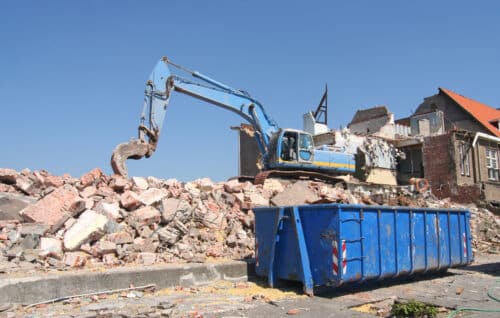
However, there are some negative points to bagsters. They aren’t suitable to every kind of job out there, so before you decide to use one, it’s good to educate yourself about their weaknesses.
Things to Consider Before Using a Bagster
- Durability: Bagsters aren’t as durable as regular dumpster. Since a dumpster is more heavy-duty, you can load it up with heavy things without having to worry much. On the other hand, bagsters are made of a tarp-like material with handles. You will have to be mindful of how you load it, beginning with the edges to keep its rectangular shape. It’s also important to not let things overflow over the edges.
- Placement: Placing a dumpster is simple. Just find a convenient location on your property. All you need to do is avoid sloped surfaces. When using a bagster, in addition to being on flat ground, they need to be picked up by a crane , so it needs to be 5 feet away from any structure or vehicle. You also need 18 feet of vertical clearance of wires, tress, and buildings.
- Scheduling Pick-Up: When you rent a dumpster, you can schedule the pickup on your schedule, no matter what day or time. But the company that picks up your Bagster will give you a 3-day window, and is only available on Monday-Friday between 5 AM and 8 PM.
Before you purchase a bagster and begin working on your project, make sure you do your research and consider whether it’s the best choice.